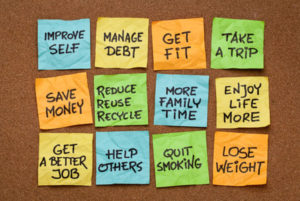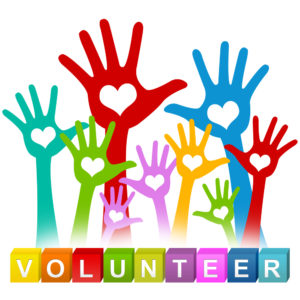
When I work with couples, I will often hear about it if “nothing is changing” in their relationship. I then ask what have they been doing in between sessions–if they have been doing the tasks I suggest to support the work we do in the office. The couples who do these tasks see change, and see it faster! The relevance of this to the topic of “sticking to resolutions” is that change requires work. There is no other way to put it!
Articles are written about change every new year, and it can be hard to sift out what is helpful! If you are hoping to successfully change habits this year, then let’s at least admit to the fact that change is difficult. However it is possible when you accept what you are up against going into it, and are prepared with useful tools. This month’s article offers three key points to assist. Let’s take a look…
DECIDE WHAT IS IMPORTANT TO YOU AND WHY: The first step of anything usually involves a plan. Having a plan does not mean excluding spontaneity–just that you go into the task with intention. Intention is formed out of what is important to you, and by knowing why that is important you have a chance of sustaining both the intention and the plan.
Want to get in better shape? Great! If that is the “what”, then figure out what has been more important up to this point, and decide if you are okay with that continuing! You can want to eat donuts everyday andhave six pack abs, but you’d be better served decidingwhich one is more important to you because you can’t have both!
Eating donuts is certainly easier than getting a six pack (and tastier!), so this is where the why comes in. If you are going to change habits from an “easy” one to one that takes more work, I suggest that you know why you are doing that, and that your reason comes from inside, not outside. If you feel pressured by others to get in shape, it will be harder to stick to your goals than if you are motivated by wanting to feel good, or be alive to enjoy your grandchildren. WIthout a strong, personal why, resolutions weaken at the first sign of difficulty.The why is the carrot that will lead you to persevere.So what is important to you, and why?
PRACTICE CHANGE DAILY, AND “RELAPSE” IS OKAY: Most gyms report that members who sign up in January generally do not continue coming regularly after that month. In many cases, these new signups have never worked out at a gym before. Change is not something that we can just embrace on impulse–the status quo wants to maintain itself, even when uncomfortable! This is why I recommend practicing change daily, in both large and small ways. How are you going to commit to that gym membership is you can’t resist that donut? Small exercises in change can have a big impact on how we think and behave, and any rewards we experience as a result can serve to reinforce our efforts at bigger change.
Remember, though, that the status quo wants to maintain itself, so don’t be surprised if that donut wins out once in awhile! Relapse is going to happen, so why not think about it in a way that does not make you feel guilty or shameful? You might even work relapse into your plan–this is what people call “cheat days”. This goes back to the point in the opening paragraph about knowing what you are up against if you are hoping for success!
JOIN WITH OTHERS/ENLIST WITNESSES: One of the strongest tools to help maintain resolutions is support. When 12-step programs succeed with people, it is not because of any technique, but because of the community that holds members accountable and offers compassionate support. If your resolution is something that can be done with another, then try that as a way to hold each other accountable while having fun! It is a lot harder to hit the snooze button on the alarm if your buddy is arriving in five minutes to go running with you.
This also ties into the final tip: enlisting witnesses. Before I took my licensing exam, I posted a Facebook message saying that it was “time to go pass a test!” Some friends said they would never do that, because what if they did not pass? But I did it to have others witness my goal. It did not feel like pressure to go into the exam this way, it felt powerful–I had made a declaration in front of the world, and I carried that intention and support into the exam room with me. By the way, I passed!
Witnesses do not need to be the whole world, even one trusted ally can prove effective. By enlisting witnesses, we are essentially closing down an “escape hatch” of anonymity regarding our resolution. It is a trick that has a positive effect on the mind by reinforcing our intention and sense of support.
There you have it! Now go forth with resolve!

